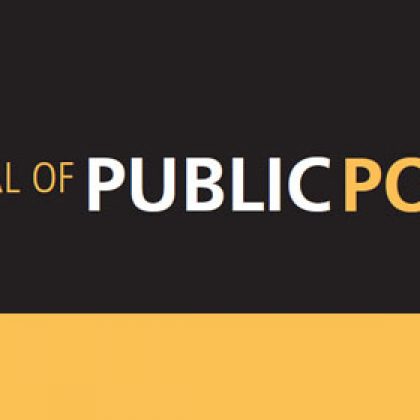“Paul’s Place in a First-Century Revival of the Discourse of ‘Equality’”
 The discourse of “equality,” which originated in democratic Athens, revived in the first century CE, in response to growing inequality between the classes. Symptomatic of the increase in inequality in the early Roman Empire were the numerous and widespread outbreaks of riots and uprisings in the cities of Greece and Asia Minor in the first and second centuries CE. Among the thinkers who revisited the idea of “equality” in this period was Paul of Tarsus, who appealed to the principle of “equality” in order to encourage the Christ-believers at Corinth to contribute to a collection of money for the poor in Jerusalem. This essay compares Paul’s concept of “equality” with those of seven contemporaries (Philo, Plutarch, Dio Chrysostom, Pseudo-Ecphantus, Diotogenes, Sthenidas, Pseudo-Arcytas). Paul’s concept of “equality” is shown to be significantly more “democratic” that those of his contemporaries. More importantly, Paul extends the principle of “equality” into the socio-economic sphere, making “equality” the goal of relations between those who enjoy “abundance” and those who suffer “lack.” Paul’s extension of the principle of “equality” into the sphere of economic relations has virtually no precedent in the Greco-Roman world. The source of Paul’s originality is sought in the egalitarian impulses that were at work in the earliest communities of Christ-believers, and finally in Paul’s own theology.
The discourse of “equality,” which originated in democratic Athens, revived in the first century CE, in response to growing inequality between the classes. Symptomatic of the increase in inequality in the early Roman Empire were the numerous and widespread outbreaks of riots and uprisings in the cities of Greece and Asia Minor in the first and second centuries CE. Among the thinkers who revisited the idea of “equality” in this period was Paul of Tarsus, who appealed to the principle of “equality” in order to encourage the Christ-believers at Corinth to contribute to a collection of money for the poor in Jerusalem. This essay compares Paul’s concept of “equality” with those of seven contemporaries (Philo, Plutarch, Dio Chrysostom, Pseudo-Ecphantus, Diotogenes, Sthenidas, Pseudo-Arcytas). Paul’s concept of “equality” is shown to be significantly more “democratic” that those of his contemporaries. More importantly, Paul extends the principle of “equality” into the socio-economic sphere, making “equality” the goal of relations between those who enjoy “abundance” and those who suffer “lack.” Paul’s extension of the principle of “equality” into the sphere of economic relations has virtually no precedent in the Greco-Roman world. The source of Paul’s originality is sought in the egalitarian impulses that were at work in the earliest communities of Christ-believers, and finally in Paul’s own theology.
Read the full article here with free access through November 30, 2017.






